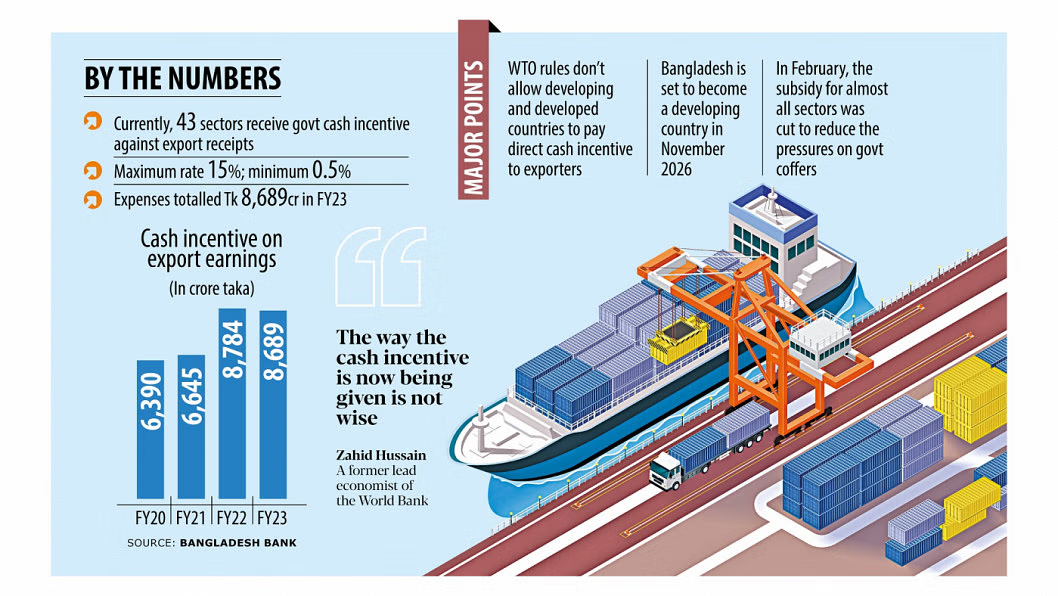Western brands reopening businesses under new names in Russian markets have spelled optimism and opportunities for Bangladesh apparel exporters.
Many foreign brands are importing goods for the Russian market through other countries – Turkey, UAE and Singapore – industry insiders said.
According to a Swiss study, despite widespread outrage over Moscow’s war in Ukraine, few Western companies deserted the country, the AFP reports.
Talking with The Business Standard, a leading fabrics manufacturing company’s executive director seeking anonymity, said, “They have business with two Russian brands – Gloria Jeans and O’Stin [Austin] – for a long time, which is continuing till now.”
Brands like ZZX, H&M and Inditex have launched new business offices in Dubai under new names to circumvent the political pressure.
“Those new companies are also doing business with us. They source fabrics from and import goods through third countries like Turkey. They have been doing business through third countries for a long time, but currently it has become very strict due to the EU’s position against Russia,” the top textile official added.
In March 2022, several Russian banks were excluded from the SWIFT (Society for Worldwide Interbank Financial Telecommunication) system, which made it difficult for Russian exporters to secure payments.
On the other hand, major retailers and brands announced that they were leaving the Russian market.
As a result, Bangladeshi exporters face difficulties getting their payments on time. Some exporters received their payments from third countries like Turkey or in Chinese currency through other third countries.
According to the Export Promotion Bureau (EPB), apparel exports to Turkey and the United Arab Emirates increased to $117.43 million with over 83% growth and $155.35 million with over 22.28% growth respectively between July –December in FY23 over the same period last year.
Bangladesh exported $665.32 million worth of goods to Russia in FY21, of which, $607 million came from apparel and textile exports, according to EPB.
However, the apparel export value fell by 47.06% to $180.64 million by July –December in FY23 compared to the same period last year.
Md Shahidul Islam, managing director of Rupa Group, which had business in the Russian market till last year, said, “Currently, we have no business in this market. Due to the ongoing war, it has become quite risky.
“My buyers had paid all dues, which was halted due to this war,” added Shahidul.
Before the war, the company exported half a million dollars worth of sweaters to Russia each month.
Young 4 Ever Textiles Ltd Managing Director Rajiv Chowdhury said, “Currently, I have no business in this market even though alternative routes are available.”
There are some new routes open to doing business with Russia, he said, adding, “I know some of our exporters have continued their business through Dubai and Singapore.”
Despite having interest from buyers, Rajiv thinks that doing business through an alternative route will be risky for him, as he received two-and-a-half months of delayed payments when the Russia-Ukraine war broke in February last year.
Bangladesh Textile Mills Association President Mohammad Ali Khokon said, “Those Russian chain stores that shut down due to the war are reopening under different brand names. Demand is not falling, which is good news as we want our fabrics and apparel to be sold.
“We are now seeing that the global political situation is slowly improving. So even though 2023 is not starting out well, we believe it will get better by the end of the year,” he added.
Only 8.5% of Western companies left Russia
Researchers at the University of St Gallen and the IMD Institute in Lausanne have delved into how many companies based in the European Union (EU) and in G7 countries have divested from Russia since its full-scale invasion of Ukraine began last February.
Their findings reveal “a very limited retreat of EU and G7 firms from Russia, [and] challenge the narrative that there is a vast exodus of Western firms leaving the market,” said the St Gallen University in a statement, AFP reports.
“In effect, many firms headquartered in these nations have resisted pressures from governments, the media, and NGOs to leave Russia since the invasion of Ukraine.”
The study published last month by the online Social Science Research Network (SSRN) — a publisher of “pre-print” studies not subjected to scientific peer review — showed that less than 10% of EU and G7 companies with Russian subsidiaries had divested them.
When Moscow launched its invasion, 1,404 companies based in the EU and the G7 counted a total of 2,405 subsidiaries that were active in Russia, the study showed.
Only 120, or about 8.5% of those companies, by late November, had divested at least one subsidiary in Russia, study authors Niccolo Pisani and Simon Evenett found.
There were more confirmed exits by companies headquartered in the United States than those based in Europe and Japan.
But even with the United States, fewer than 18% of US subsidiaries operating in Russia had been completely divested since the invasion began, the study showed.
By contrast, 15% of Japanese firms and only 8.3% of EU firms had divested from Russia, it said.
Of those who have left their Russian subsidiaries in place, 19.5% are German and 12.4% are US-owned, according to the study.
The research also showed that the exiting Western firms only accounted for 6.5% of the total profit before tax of EU and G7 firms with active commercial operations in Russia.
They, meanwhile, accounted for 15.3% of the total number of employees working for such firms in Russia.
This indicates that, on average, the exiting firms tended to have lower profitability and larger workforces than the firms that remain in Russia, the study said.
These findings, the university statement said, “call into question the willingness of Western firms to decouple from economies their governments now deem to be geopolitical rivals.”
















